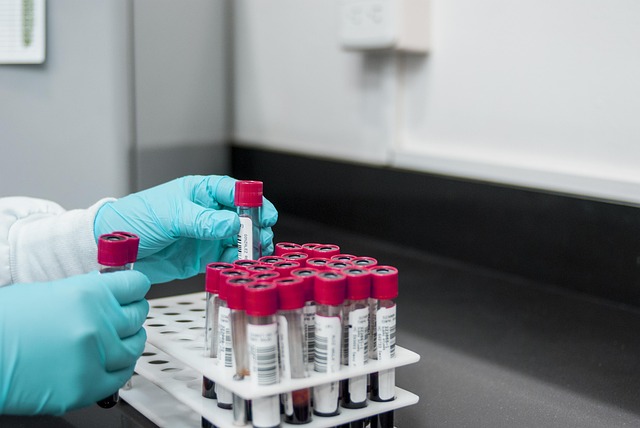Testosterone levels play a key role in men's health, influencing various aspects from muscle mass to libido. A Well Person Blood Test UK can identify testosterone deficiencies or excesses early through measuring these levels, aiding in timely interventions for conditions like hypogonadism or cardiovascular risks associated with elevated testosterone. Interpreted by doctors considering age, history, and health, this test offers a comprehensive way to assess overall male well-being.
In the UK, maintaining optimal health is paramount, especially for men. One crucial aspect often overlooked is monitoring testosterone levels through a well person blood test. As a key hormone, testosterone plays a vital role in male health and overall wellbeing. This article delves into understanding testosterone’s significance, exploring when to consider testing, and interpreting results to foster proactive healthcare for UK men.
- Understanding Testosterone and Its Role in Male Health
- When to Consider Testosterone Level Testing
- Interpreting Results: What Does It Mean for Your Health?
Understanding Testosterone and Its Role in Male Health

Testosterone is a key hormone that plays a vital role in maintaining optimal male health and well-being. Often referred to as the ‘master hormone’, it is primarily produced by the testes, with small amounts also synthesized in the adrenal glands and ovaries. Testosterone is responsible for various physical attributes and functions, including muscle mass development, bone density maintenance, fat distribution, red blood cell production, and libido. It contributes significantly to a man’s overall vitality and energy levels.
In the UK, a well-person blood test may include measuring testosterone levels as part of a comprehensive health check. This is particularly important for identifying potential health issues early on, as testosterone deficiencies can lead to various symptoms such as fatigue, muscle weakness, decreased libido, and changes in body composition. Regular monitoring, especially for men with risk factors or concerns about their health, allows for timely intervention and management of testosterone-related conditions.
When to Consider Testosterone Level Testing

If you’re a man experiencing symptoms that could indicate underlying health issues, testosterone level testing might be a crucial step in gaining clarity and pursuing appropriate treatment. While it’s often associated with specific medical conditions, considering this Well Person Blood Test UK can provide valuable insights into your overall well-being.
Symptoms like persistent fatigue, decreased muscle mass, reduced energy levels, or changes in sexual function could be red flags. Testosterone plays a vital role in maintaining these aspects of health, so testing becomes an essential tool for diagnosis. It’s not just for athletes or those with apparent hormone disorders; men experiencing subtle changes can also benefit from this simple procedure.
Interpreting Results: What Does It Mean for Your Health?

Interpreting your testosterone level results is a crucial step in understanding your health status. In the context of a well person blood test UK, reference ranges can vary slightly between labs, but typically, a total testosterone level between 10 and 35 nanomoles per litre (nmol/L) for men is considered normal. If your result falls below 10 nmol/L, it may indicate hypogonadism or low testosterone levels, which can lead to various health issues like decreased muscle mass, fatigue, and bone density problems.
On the other hand, a result above 35 nmol/L could suggest potential health risks as well. High testosterone levels are often associated with cardiovascular issues, acne, enlarged prostate, and aggressive behaviour. However, it’s important to remember that these are general guidelines. Your doctor will consider various factors, including your age, medical history, and overall health, to interpret your results accurately and recommend appropriate next steps for maintaining optimal male health.
Testosterone level testing can be a valuable tool for maintaining and optimising male health in the UK. By understanding when to consider this well person blood test, interpreting the results accurately, and consulting with healthcare professionals, men can proactively manage their health and address any potential issues early on. Regular monitoring is key to ensuring optimal testosterone levels, promoting overall well-being, and preventing more serious health complications.
